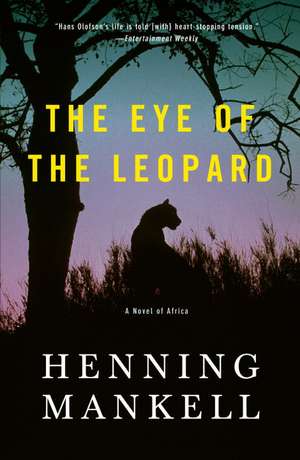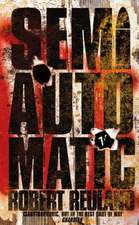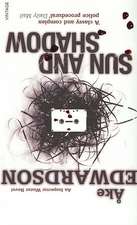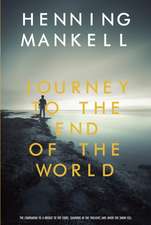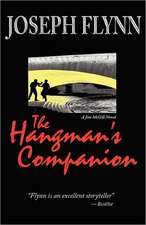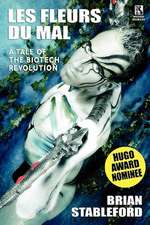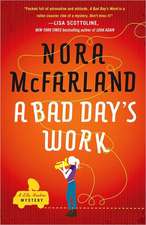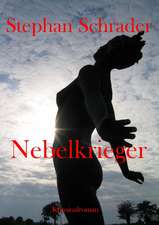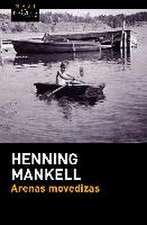The Eye of the Leopard
Autor Henning Mankell Traducere de Steven T. Murrayen Limba Engleză Paperback – 31 mar 2009
Hans Olofson arrives in Zambia not long after independence, hoping to fulfill the missionary dream of his recently deceased friend Janice. Africa is a complete shock to Olofson, yet he chooses to stay and make it his home, eventually taking control of a small farm. Here, he learns of the fragile truce between the white and black populations of Zambia, and rumors of an underground army of revolutionaries wearing leopard skins alert him that violence may erupt at any moment. As a wealthy white man, he grows increasingly fearful and returns in his mind to the traumatic events that drove him from Sweden, playing back the complicated events of his past, as his present races toward a thrilling climax.
Preț: 81.47 lei
Nou
Puncte Express: 122
Preț estimativ în valută:
15.60€ • 16.07$ • 13.09£
15.60€ • 16.07$ • 13.09£
Carte indisponibilă temporar
Doresc să fiu notificat când acest titlu va fi disponibil:
Se trimite...
Preluare comenzi: 021 569.72.76
Specificații
ISBN-13: 9780307385857
ISBN-10: 030738585X
Pagini: 315
Dimensiuni: 133 x 203 x 18 mm
Greutate: 0.24 kg
Editura: Vintage Books USA
ISBN-10: 030738585X
Pagini: 315
Dimensiuni: 133 x 203 x 18 mm
Greutate: 0.24 kg
Editura: Vintage Books USA
Notă biografică
Internationally bestselling novelist and playwright Henning Mankell has received the German Tolerance Prize and the U.K.'s Golden Dagger Award and has been nominated for a Los Angeles Times Book Prize three times. His Kurt Wallander mysteries have been published in thirty-three countries and consistently top the bestseller lists in Europe. He divides his time between Sweden and Maputo, Mozambique, where he has worked as the director of Teatro Avenida since 1985.
Extras
Chapter One
He wakes in the African night, convinced that his body has split in two. Cracked open, as if his guts had exploded, with the blood running down his face and chest.
In the darkness he fumbles in terror for the light switch, but when he flips it there is no light, and he thinks the electricity must be out again. His hand searches under the bed for a torch, but the batteries are dead and so he lies there in the dark.
It's not blood, he tells himself. It's malaria. I've got the fever, the sweat is being squeezed out of my body. I'm having nightmares, fever dreams. Time and space are dissolving, I don't know where I am, I don't even know if I'm still alive . . .
Insects are crawling across his face, enticed by the moisture that is oozing from his pores. He thinks he ought to get out of bed and find a towel. But he knows he wouldn't be able to stand upright, he would have to crawl, and maybe he wouldn't even be able to make it back to bed. If I die now at least I'll be in my own bed, he thinks, as he feels the next attack of fever coming on.
I don't want to die on the floor. Naked, with cockroaches crawling across my face.
His fingers clutch at the wet sheet as he prepares himself for an attack that will be more violent than the ones before. Feebly, in a voice that is hardly audible, he cries out in the darkness for Luka, but there is only silence and the chirping cicadas of the African night.
Maybe he's sitting right outside the door, he thinks in desper_ation. Maybe he's sitting there waiting for me to die.
The fever comes rolling through his body in waves, like sudden storm swells. His head burns as if thousands of insects were stinging and boring into his forehead and temples. Slowly he is dragged away from consciousness, sucked down into the underground corridors of the fever attack, where he glimpses the distorted faces of nightmares among the shadows.
I can't die now, he thinks, gripping the sheet to keep himself alive.
But the suction draught of the malaria attack is stronger than his will. Reality is chopped up, sawed into pieces that fit nowhere. He believes he is sitting in the back seat of an old Saab that is racing through the endless forests of Norrland in Sweden. He can't see who is sitting in front of him: only a black back, no neck, no head.
It's the fever, he thinks again. I have to hold on, keep thinking that it's only the fever, nothing more.
He notices that it has started to snow in the room. White flakes are falling on his face and instantly it's cold all around him.
Now it's snowing in Africa, he thinks. That's odd, it really shouldn't be doing that. I have to get hold of a spade. I have to get up and start shovelling, otherwise I'll be buried in here.
Again he calls for Luka, but no one answers, no one comes. He decides to fire Luka, that's the first thing he'll do if he survives this fever.
Bandits, he thinks in confusion. Of course, that's who cut the electrical line.
He listens and seems to hear the patter of their feet outside the walls of the house. With one hand he grips the revolver under his pillow, forces himself up to a sitting position, and points the gun at the front door. He has to use both hands just to lift it, and in desperation he fears he doesn't have enough strength in his finger to pull the trigger.
I'm going to give Luka the sack, he thinks in a rage. He's the one who cut the electrical line, he's the one who lured the bandits here. I have to remember to fire him in the morning.
He tries to catch some snowflakes in the barrel of the revolver, but they melt before his eyes.
I have to put on my shoes, he thinks. Otherwise I'll freeze to death.
With all his might he leans over the edge of the bed and searches with one hand, but finds only the dead torch.
The bandits, he thinks groggily. They've stolen my shoes. They've already been inside while I was asleep. Maybe they're still here . . .
He fires the pistol out into the room. The shot roars in the dark and he falls back against the pillows with the recoil, feeling calm, almost content.
Luka is behind it all, naturally. It was he who plotted with the bandits, he who cut the electrical line. But now he's been unmasked, so he has no more power. He will be sacked, chased off the farm.
They won't get me, he thinks. I'm stronger than all of them.
The insects continue boring into his forehead and he is very tired. He wonders whether dawn is far off, and he thinks that he must sleep. The malaria comes and goes, that's what is giving him the nightmares. He has to force himself to distinguish what he's imagining from what's real.
It can't snow here, he thinks. And I'm not sitting in the back seat of an old Saab racing through the bright summer forests of Norrland. I'm in Africa, not in Härjedal. I've been here for eighteen years. I have to keep my mind together. The fever is compelling me to stir up old memories, bring them to the surface, and to fool myself that they're real.
Memories are dead things, albums and archives that have to be kept cold and under lock and key. Reality requires my consciousness. To have a fever is to lose one's internal directions. I mustn't forget that. I'm in Africa and I've been here for eighteen years. It was never my intention, but that's how it turned out.
I've lost count of how many times I've had malaria. Sometimes the attacks are violent, like now; other times milder, a shadow of fever that quickly passes across my face. The fever is seductive, it wants to lure me away, creating snow even though it's over thirty degrees Celsius. But I'm still here in Africa, I've always been here, ever since I landed and stepped off the plane in Lusaka. I was going to stay a few weeks, but I've been here a long time, and that is the truth. It is not snowing.
His breathing is heavy and he feels the fever dancing inside him. Dancing him back to the beginning, to that early morning eighteen years ago when for the first time he felt the African sun on his face.
From the mists of the fever an instant of great clarity emerges, a landscape in which the contours are sharp and washed clean. He brushes off a large cockroach that is feeling his nostril with its antennae and sees himself standing in the doorway of the big jet at the top of the mobile staircase they have brought out.
He recalls that his first impression of Africa was how the sunshine turned the concrete of the airport completely white. Then a smell, something bitter, like an unknown spice or a charcoal fire.
That's how it was, he thinks. I will be able to reproduce that moment exactly, for as long as I live. It was eighteen years ago. Much of what happened later I've forgotten. For me Africa became a habit. A realisation that I can never feel completely calm when faced with this wounded and lacerated continent . . . I, Hans Olofson, have grown used to the fact that it's impossible for me to comprehend anything but fractions of this continent. But despite this perpetual disadvantage I have persevered, I have stayed on, learned one of the many languages that exist here, become the employer of over 200 Africans.
I've learned to endure this peculiar life, that involves being both loved and hated at the same time. Each day I stand face to face with 200 black human beings who would gladly murder me, slit my throat, offer up my genitals in sacrifice, eat my heart.
Every morning when I awake I am still, after eighteen years, surprised to be alive. Every evening I check my revolver, rotate the magazine with my fingers, make sure that no one has replaced the cartridges with empty ones.
I, Hans Olofson, have taught myself to endure the greatest loneli_ness. Never before had I been surrounded by so many people who demand my attention, my decisions, but who at the same time watch over me in the dark; invisible eyes that follow me expectantly, waiting.
But my most vivid memory is still that moment when I descended from the plane at Lusaka International Airport eighteen years ago. I keep returning to that moment, to gather courage, the power to survive; back to a time when I still knew my own intentions . . .
Today my life is a journey through days coloured by unreality. I live a life that belongs neither to me nor to anyone else. I am neither successful nor unsuccessful in what I set out to accomplish.
What possesses me is a constant amazement at what actually did happen. What was it that really brought me here, made me take that long journey from the remote interior of Norrland, still covered in snow, to an Africa that had not summoned me? What is it in my life that I have never understood?
The most curious thing is that I've been here for so long. I was twenty-five when I left Sweden, and now I'm forty-three. My hair began turning grey long ago; my beard, which I never manage to shave off, is already completely white. I've lost three teeth, two in the lower jaw and one in the top left. The tip of my ring finger on my right hand is severed at the first knuckle, and sometimes I suffer from pain in my kidneys. I regularly dig out white worms that have bored underneath the skin on the soles of my feet. In the first few years I could scarcely bring myself to carry out these operations using sterilised tweezers and nail scissors. Now I grab a rusty nail or a knife that's lying about and carve out the parasites living in my heels.
Sometimes I try to view all these years in Africa as a wrinkle in my life, one which will some day turn out to never have happened. Maybe it's an insane dream that will be smashed apart when I finally manage to extricate myself from the life I'm living here. Someday this wrinkle in my life will have to be smoothed out . . .
In his attacks of fever, Olofson is flung against invisible reefs that tear his body apart. For brief moments the storm subsides, and he rocks on the waves and feels himself quickly turning into a block of ice. But just when he thinks the cold has reached his heart and frozen his last heartbeat to stillness, the storm returns and the fever slings him once more against the burning reefs.
In the restless, shredded dreams that rage like demons in his mind he keeps returning to the day he came to Africa. The white sun, the long journey that brought him to Kalulushi, and to this night, eighteen years later.
Like a malevolent figure, with no head or neck, the fever attack stands before him. With one hand he clutches his revolver, as if it were his last salvation.
The malaria attacks come and go.
Hans Olofson, once raised in a grim wooden house on the banks of the Ljusna River, shakes and shivers under his wet sheet.
From his dreams the past emerges, a reflection of the story he has still not given up hope of someday understanding . . .
He wakes in the African night, convinced that his body has split in two. Cracked open, as if his guts had exploded, with the blood running down his face and chest.
In the darkness he fumbles in terror for the light switch, but when he flips it there is no light, and he thinks the electricity must be out again. His hand searches under the bed for a torch, but the batteries are dead and so he lies there in the dark.
It's not blood, he tells himself. It's malaria. I've got the fever, the sweat is being squeezed out of my body. I'm having nightmares, fever dreams. Time and space are dissolving, I don't know where I am, I don't even know if I'm still alive . . .
Insects are crawling across his face, enticed by the moisture that is oozing from his pores. He thinks he ought to get out of bed and find a towel. But he knows he wouldn't be able to stand upright, he would have to crawl, and maybe he wouldn't even be able to make it back to bed. If I die now at least I'll be in my own bed, he thinks, as he feels the next attack of fever coming on.
I don't want to die on the floor. Naked, with cockroaches crawling across my face.
His fingers clutch at the wet sheet as he prepares himself for an attack that will be more violent than the ones before. Feebly, in a voice that is hardly audible, he cries out in the darkness for Luka, but there is only silence and the chirping cicadas of the African night.
Maybe he's sitting right outside the door, he thinks in desper_ation. Maybe he's sitting there waiting for me to die.
The fever comes rolling through his body in waves, like sudden storm swells. His head burns as if thousands of insects were stinging and boring into his forehead and temples. Slowly he is dragged away from consciousness, sucked down into the underground corridors of the fever attack, where he glimpses the distorted faces of nightmares among the shadows.
I can't die now, he thinks, gripping the sheet to keep himself alive.
But the suction draught of the malaria attack is stronger than his will. Reality is chopped up, sawed into pieces that fit nowhere. He believes he is sitting in the back seat of an old Saab that is racing through the endless forests of Norrland in Sweden. He can't see who is sitting in front of him: only a black back, no neck, no head.
It's the fever, he thinks again. I have to hold on, keep thinking that it's only the fever, nothing more.
He notices that it has started to snow in the room. White flakes are falling on his face and instantly it's cold all around him.
Now it's snowing in Africa, he thinks. That's odd, it really shouldn't be doing that. I have to get hold of a spade. I have to get up and start shovelling, otherwise I'll be buried in here.
Again he calls for Luka, but no one answers, no one comes. He decides to fire Luka, that's the first thing he'll do if he survives this fever.
Bandits, he thinks in confusion. Of course, that's who cut the electrical line.
He listens and seems to hear the patter of their feet outside the walls of the house. With one hand he grips the revolver under his pillow, forces himself up to a sitting position, and points the gun at the front door. He has to use both hands just to lift it, and in desperation he fears he doesn't have enough strength in his finger to pull the trigger.
I'm going to give Luka the sack, he thinks in a rage. He's the one who cut the electrical line, he's the one who lured the bandits here. I have to remember to fire him in the morning.
He tries to catch some snowflakes in the barrel of the revolver, but they melt before his eyes.
I have to put on my shoes, he thinks. Otherwise I'll freeze to death.
With all his might he leans over the edge of the bed and searches with one hand, but finds only the dead torch.
The bandits, he thinks groggily. They've stolen my shoes. They've already been inside while I was asleep. Maybe they're still here . . .
He fires the pistol out into the room. The shot roars in the dark and he falls back against the pillows with the recoil, feeling calm, almost content.
Luka is behind it all, naturally. It was he who plotted with the bandits, he who cut the electrical line. But now he's been unmasked, so he has no more power. He will be sacked, chased off the farm.
They won't get me, he thinks. I'm stronger than all of them.
The insects continue boring into his forehead and he is very tired. He wonders whether dawn is far off, and he thinks that he must sleep. The malaria comes and goes, that's what is giving him the nightmares. He has to force himself to distinguish what he's imagining from what's real.
It can't snow here, he thinks. And I'm not sitting in the back seat of an old Saab racing through the bright summer forests of Norrland. I'm in Africa, not in Härjedal. I've been here for eighteen years. I have to keep my mind together. The fever is compelling me to stir up old memories, bring them to the surface, and to fool myself that they're real.
Memories are dead things, albums and archives that have to be kept cold and under lock and key. Reality requires my consciousness. To have a fever is to lose one's internal directions. I mustn't forget that. I'm in Africa and I've been here for eighteen years. It was never my intention, but that's how it turned out.
I've lost count of how many times I've had malaria. Sometimes the attacks are violent, like now; other times milder, a shadow of fever that quickly passes across my face. The fever is seductive, it wants to lure me away, creating snow even though it's over thirty degrees Celsius. But I'm still here in Africa, I've always been here, ever since I landed and stepped off the plane in Lusaka. I was going to stay a few weeks, but I've been here a long time, and that is the truth. It is not snowing.
His breathing is heavy and he feels the fever dancing inside him. Dancing him back to the beginning, to that early morning eighteen years ago when for the first time he felt the African sun on his face.
From the mists of the fever an instant of great clarity emerges, a landscape in which the contours are sharp and washed clean. He brushes off a large cockroach that is feeling his nostril with its antennae and sees himself standing in the doorway of the big jet at the top of the mobile staircase they have brought out.
He recalls that his first impression of Africa was how the sunshine turned the concrete of the airport completely white. Then a smell, something bitter, like an unknown spice or a charcoal fire.
That's how it was, he thinks. I will be able to reproduce that moment exactly, for as long as I live. It was eighteen years ago. Much of what happened later I've forgotten. For me Africa became a habit. A realisation that I can never feel completely calm when faced with this wounded and lacerated continent . . . I, Hans Olofson, have grown used to the fact that it's impossible for me to comprehend anything but fractions of this continent. But despite this perpetual disadvantage I have persevered, I have stayed on, learned one of the many languages that exist here, become the employer of over 200 Africans.
I've learned to endure this peculiar life, that involves being both loved and hated at the same time. Each day I stand face to face with 200 black human beings who would gladly murder me, slit my throat, offer up my genitals in sacrifice, eat my heart.
Every morning when I awake I am still, after eighteen years, surprised to be alive. Every evening I check my revolver, rotate the magazine with my fingers, make sure that no one has replaced the cartridges with empty ones.
I, Hans Olofson, have taught myself to endure the greatest loneli_ness. Never before had I been surrounded by so many people who demand my attention, my decisions, but who at the same time watch over me in the dark; invisible eyes that follow me expectantly, waiting.
But my most vivid memory is still that moment when I descended from the plane at Lusaka International Airport eighteen years ago. I keep returning to that moment, to gather courage, the power to survive; back to a time when I still knew my own intentions . . .
Today my life is a journey through days coloured by unreality. I live a life that belongs neither to me nor to anyone else. I am neither successful nor unsuccessful in what I set out to accomplish.
What possesses me is a constant amazement at what actually did happen. What was it that really brought me here, made me take that long journey from the remote interior of Norrland, still covered in snow, to an Africa that had not summoned me? What is it in my life that I have never understood?
The most curious thing is that I've been here for so long. I was twenty-five when I left Sweden, and now I'm forty-three. My hair began turning grey long ago; my beard, which I never manage to shave off, is already completely white. I've lost three teeth, two in the lower jaw and one in the top left. The tip of my ring finger on my right hand is severed at the first knuckle, and sometimes I suffer from pain in my kidneys. I regularly dig out white worms that have bored underneath the skin on the soles of my feet. In the first few years I could scarcely bring myself to carry out these operations using sterilised tweezers and nail scissors. Now I grab a rusty nail or a knife that's lying about and carve out the parasites living in my heels.
Sometimes I try to view all these years in Africa as a wrinkle in my life, one which will some day turn out to never have happened. Maybe it's an insane dream that will be smashed apart when I finally manage to extricate myself from the life I'm living here. Someday this wrinkle in my life will have to be smoothed out . . .
In his attacks of fever, Olofson is flung against invisible reefs that tear his body apart. For brief moments the storm subsides, and he rocks on the waves and feels himself quickly turning into a block of ice. But just when he thinks the cold has reached his heart and frozen his last heartbeat to stillness, the storm returns and the fever slings him once more against the burning reefs.
In the restless, shredded dreams that rage like demons in his mind he keeps returning to the day he came to Africa. The white sun, the long journey that brought him to Kalulushi, and to this night, eighteen years later.
Like a malevolent figure, with no head or neck, the fever attack stands before him. With one hand he clutches his revolver, as if it were his last salvation.
The malaria attacks come and go.
Hans Olofson, once raised in a grim wooden house on the banks of the Ljusna River, shakes and shivers under his wet sheet.
From his dreams the past emerges, a reflection of the story he has still not given up hope of someday understanding . . .
Recenzii
“Hans Olofson's life is told [with] heart-stopping tension.”
—Entertainment Weekly
“A thriller of the mind [and] chilling journey into the depths of fear, alienation and despair. . . . A white-knuckle page-turner.”
—The Independent, London
“Mankell at his best.”
—The Telegraph, London
"A beautiful, heartbreaking, yet ultimately hopeful coming-of-age novel."
—Booklist
—Entertainment Weekly
“A thriller of the mind [and] chilling journey into the depths of fear, alienation and despair. . . . A white-knuckle page-turner.”
—The Independent, London
“Mankell at his best.”
—The Telegraph, London
"A beautiful, heartbreaking, yet ultimately hopeful coming-of-age novel."
—Booklist
Descriere
Interweaving past and present, Sweden and Zambia, rich and poor, "The Eye of the Leopard" is a stunning novel from a modern master.
